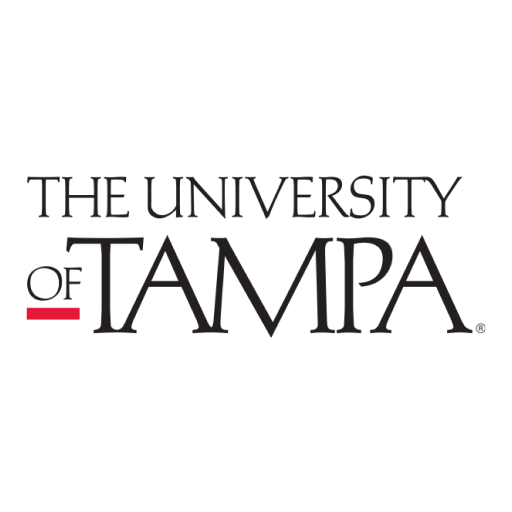• Study in Canada
Increase your CRS Score with 1-year Master's in Canada
21782 Reads
3 min Read
- A higher CRS score can boost your chances of receiving an Invitation to Apply (ITA) for permanent residency.
- You must study in Canada for at least 8 months to get CRS points for Canadian education.
- Getting nominated under the PNP program can increase your score by 600 points.
Table of Contents
- • What is a Comprehensive Ranking System(CRS)?
- • Importance of High CRS Score
- • Comprehensive Ranking System (CRS) Points Per Factors
- • How to Study a 1-Year Masters in Canada?
- • Documents Required for 1 Year Masters in Canada
- • 1 Year Master's Program and CRS Points
- • Other Ways to Increase Your CRS Scores
What is a Comprehensive Ranking System(CRS)?
| Canadian Experience Class |
|
| Federal Skilled Worker Program |
|
| Federal Skilled Trades Program |
|
Importance of High CRS Score
| Get a competitive advantage | Thousands of international students apply annually to receive an ITA for permanent residency. More applications equals more competition. That is why you need to get a higher CRS score to place yourself ahead of other candidates in the pool and become eligible to receive ITA for permanent residency. |
| Receive an ITA | IRCC issues a limited number of ITAs during each draw; hence, having a high CRS score may help you get selected during the draw. |
Comprehensive Ranking System (CRS) Points Per Factors
| Factors | Points per factor- with a Spouse or common-law partner | Points per factor - without a Spouse or common-law partner |
| Age | 100 | 110 |
| Level of Education | 140 | 150 |
| Official Languages Proficiency | 150 | 160 |
| Canadian Work Experience | 70 | 80 |
How to Study a 1-Year Masters in Canada?
Eligibility Criteria
| A Bachelor's Degree | You must have done a bachelor's degree in a relevant program from a recognised university. |
| 3-year Bachelor's | In some cases, the university may consider a three-year bachelor's degree if an additional qualifying program or relevant work experience follows it. However, it is not guaranteed, so check with an expert study abroad consultant for the requirements of the program you're interested in. |
| Academic Performance | Strive to aim for a GPA of 3.0 or higher in your bachelor's program to demonstrate your ability to handle challenging academic coursework in a graduate program. |
| English Language Proficiency Test Score | Completing an entire bachelor's degree in Canada at an English-language institution typically waives the English language test scores requirement. However, some exceptions exist:
|
| Work Experience | While not mandatory for all programs, having relevant work experience can help to strengthen your application and provide practical insights for your master's studies. |
| Standardised Tests (GMAT/GRE) | Some programs, particularly in business (GMAT) or engineering (GRE), may require these tests to assess quantitative and analytical skills. |
Documents Required for 1 Year Masters in Canada
| Document | Description |
| Bachelor's Degree | You must prove that you completed your bachelor's degree from a recognised institution. |
| SOP | Craft a well-written essay outlining your academic background, research interests, and career aspirations. |
| Letter of Recommendation | Get your Recommendation from professors who can vouch for your academic capabilities and potential for success in graduate studies. |
| Updated Resume or CV | An updated CV may be required to showcase your academic and professional achievements. |
| Proof of English Language Proficiency | Scores of your English language tests (if required). |
| GMAT/GRE Scores | You may have to submit your GMAT/ GRE scores if the program requires them. |
| Proof of Financial Support | Proof of funds may be required to demonstrate that you have sufficient funds to cover tuition fees and living expenses. |
Application Process
| Program Exploration | Research the universities and check if they offer the program you are looking for. |
| Check the Eligibility | Ensure you are eligible for a program at the university of your choice. |
| Gather Documents | Look for the documents required by the university and keep them on hand for easy access. |
| Application Submission | Complete the application form and submit it through the university portal with the required documents. Avoid late applications or missed deadlines. |
| Interview | If shortlisted, the admission committee will invite you to an interview. This interview gives you a chance to make a personal connection with the program faculty and showcase your enthusiasm and qualifications. |
| Canadian Study Permit | Once you receive your application letter, apply for the permit, as you'll need to study legally in Canada. |
| Secure Funding | Check if your university provides any scholarship or bursary. |
1 Year Master's Program and CRS Points
Apply for a Recognized Canadian Education Institution
| Level Attained | Points Awarded |
| High school | 0 |
| One or two-year post-secondary | 15 |
| Three-year post-secondary, master's, professional degree or doctorate | 30 |
Candidates can only score Canadian education points if they have:
- Completed their studies in Canada at a Canadian educational institution.
- Studied or enrolled in a full-time study or training for at least 8 months.
- Attended the classes physically in Canada for at least 8 months.
Pursuing studies while in the pool
While Getting your Qualifications Assessed
Other Ways to Increase Your CRS Scores
Faster option
If you want to get a competitive CRS score and be done with the process within a few weeks, then increasing your score on the language test is the best way. You might have noticed in the tables above that language ability is worth up to 260 or 270 CRS points for singles and couples, respectively. This means you can get extra CRS points with each improvement in your test results. It also increases your points under skills transferability factors.
Slower options
| Gain Work Experience | It is important for candidates studying and working in Canada to stay employed as there are more points for Canadian work experience. Ensure you maintain legal work status as long as you work in Canada. If you can indicate on your Express Entry profile that you are working in Canada, your score will update automatically. |
| Provincial Nominee Program (PNP) | You earn 600 points straight if you manage to receive a nomination from a province. PNP provides a pathway to permanent residency to people with low CRS scores in the Express Entry pool. Getting a nomination from a province also increases your chances of getting an ITA. However, remember that each province sets their own criteria for nominee programs. Usually, provinces require you to have some type of connection with the province to become eligible to apply, but many provinces look for candidates who can fill the labour market or demographic gaps. |
Conclusion
FAQ
Get great articles direct to your inbox
The latest news, articles, and resources, sent straight to your inbox every month.
Popular Universities to Study Abroad
World class education waiting for you.

University of Massachusetts Dartmouth
Massachusetts, USA • 98 Programmes
Tuition Fee : USD 30000-31000 / year

Heriot-Watt University - Orkney Campus
Scotland, UK • 3 Programmes
Tuition Fee : GBP 15000-21000 / year

Analytics Institute of Australia
Victoria, Australia • 2 Programmes
Tuition Fee : AUD 17500-18000 / year

Shorelight Group - Seattle University
Washington, USA • 85 Programmes
Tuition Fee : USD 57500-58000 / year
-Herzing-University-Atlanta-Campus.webp)
Global University Systems (GUS) - Herzing University - Atlanta Campus
Georgia, USA • 7 Programmes
Tuition Fee : USD 16000-18000 / year

William Angliss Institute - Singapore Campus
Central Region, Singapore • 1 Programmes
Tuition Fee : SGD 0-0 / year


Popular English Language Proficiency Exams
Blogs and Articles
Curated content to keep you updated on the latest education trends, news and more.
Updated on • Jul 17,2025 05:33 PM IST • USA
PTE Accepted Universities in Australia
Updated on • Jul 17,2025 05:09 PM IST • PTE
Part-Time Jobs for International Students in Australia
Updated on • Jul 17,2025 03:44 PM IST • Australia
Updated on • Jul 12,2025 04:02 PM IST • USA
Updated on • Jul 11,2025 11:32 AM IST • Education
CPT vs OPT: Meaning, Difference, and How to Apply
Updated on • Jul 11,2025 10:40 AM IST • USA
Masters in Computer Science in UK: Top Colleges, Eligibility, Scholarships
Updated on • Jul 10,2025 11:29 AM IST • study in the UK
Highest Paying Jobs in the World
Updated on • Jul 08,2025 01:40 PM IST • Study Abroad
MBA in Australia for Indian Students: Best Universities, Requirements, Scholarship, Courses, Jobs
Updated on • Jul 08,2025 01:35 PM IST • Australia
Canada vs Australia: Which Country is Better for Indian Students in 2025?
Updated on • Jul 07,2025 12:46 PM IST • Education
France vs Germany: Which Is Better for International Students?
Updated on • Jun 30,2025 05:15 PM IST • Education
Top 10 Agricultural Universities in USA
Updated on • Jun 27,2025 05:25 PM IST • USA
Most In-Demand Future Careers in 2025
Updated on • Jun 26,2025 04:41 PM IST • Education
How Much Do Nurses Make in the U.S.?
Updated on • Jun 23,2025 03:59 PM IST • USA
Updated on • Jun 21,2025 02:00 PM IST • USA
MBA in UK: Universities, Eligibility, Types, and Career Opportunities
Updated on • Jun 19,2025 04:09 PM IST • UK • study in the UK
Scholarships in France for Indian Students
Updated on • May 29,2025 05:22 PM IST • France
Intakes in Dubai for Indian Students
Updated on • May 27,2025 03:34 PM IST • Study in Dubai
France Student Visa 2025 – Requirements, Fees, Checklist & Application Process
Updated on • May 23,2025 03:36 PM IST • France
MBA in France for Indian Students in 2025
Updated on • May 22,2025 05:35 PM IST • France
Related Blogs and Articles
A little effort to provide an authentic and reliable content for keen readers!!
Updated on • 22-05-2025 • Study in Canada
Job Opportunities in Canada for Indians: Salaries, Best Job Sites & More
Updated on • 20-05-2025 • Study in Canada
Updated on • 24-01-2025 • Study in Canada
Canada Student Visa Interview Questions
Updated on • 23-01-2025 • Study in Canada
Updated on • 15-01-2025 • Study in Canada
September/Fall Intake Canada 2025: Timeline, Universities & Admission Requirements
Updated on • 03-01-2025 • Study in Canada
Updated on • 02-01-2025 • Study in Canada
Life in Canada as an Indian Student
Updated on • 26-12-2024 • Study in Canada
Timeline for Winter (January) Intake in Canada 2025
Updated on • 21-12-2024 • Study in Canada
Updated on • 05-12-2024 • Study in Canada
Best Cities to Study in Canada
Updated on • 21-11-2024 • Study in Canada
Bachelor of Architecture in Canada
Updated on • 13-11-2024 • Study in Canada
Canada Study Visa - Fee, Requirements, How to Apply & More
Updated on • 05-10-2024 • Study in Canada
Study intakes in Canada - Fall, Winter & Summer
Updated on • 03-10-2024 • Study in Canada
Letter of Recommendation (LOR) for Canada: University Requirements, Sample and Writing Tips
Updated on • 26-09-2024 • Study in Canada
New Rules & Regulations in Canada for International Students
Updated on • 31-08-2024 • Study in Canada
Public Transportation in Canada for International students
Updated on • 29-08-2024 • Study in Canada
Healthcare in Canada for international students
Updated on • 27-08-2024 • Study in Canada
Courses in Canada for International Students
Updated on • 10-08-2024 • Study in Canada
Top PG diploma Colleges in Canada - Courses, Eligibility & More
Updated on • 06-08-2024 • Study in Canada












